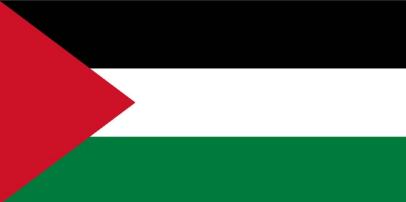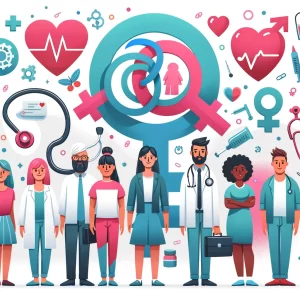
Gaza is not your resort
Recent US federal policy toward the Palestinian people is — ridiculous.
Yet, let’s not forget the bottom line. Between October 2023 and April 2024, more than 30,000 Palestinians were killed, and nearly two million displaced. The health care system in Gaza has collapsed, while access to essential services is continuously obstructed. Yet, the narrative often focuses on immediate violence rather than the deeper forces at play. A recent study highlights a critical but often overlooked factor: structural racism as a driver of Palestinian health inequities.
Public health professionals have long recognized racism as a fundamental determinant of health. However, the conversation rarely extends to Palestine, where the impact of settler colonialism, military occupation, and systemic discrimination shapes every aspect of life. The latest research urges the global health community to recognize these forces as direct threats to Palestinian health—and to act accordingly.
The Health Consequences of Occupation and Apartheid
Palestinians face a unique form of structural violence that extends far beyond the battlefield. Israeli policies and practices have created a fragmented health care system that disproportionately harms Palestinians, regardless of citizenship status. Consider these stark disparities:
- Life Expectancy Gap: Palestinians in the occupied territories have a life expectancy nearly a decade shorter than Israelis.
- Infant and Maternal Mortality: Palestinian infant and maternal mortality rates are significantly higher than those of their Israeli counterparts.
- Health Care Access: In the West Bank, movement restrictions prevent timely access to medical treatment, while Gaza’s blockade leaves hospitals without basic supplies. Even Palestinian citizens of Israel experience lower health outcomes despite being part of the Israeli health care system.
The study emphasizes that these disparities are not coincidental. They are the product of a system that devalues Palestinian life, mirroring racialized discrimination seen in other parts of the world. However, in this case, racism is compounded by military occupation, state-sanctioned violence, and international neglect.
Structural Racism as a Health Determinant
Structural racism shapes Palestinian health outcomes through multiple reinforcing mechanisms:
- Restricted Mobility: Military checkpoints delay or deny emergency medical care, leading to preventable deaths.
- Environmental Racism: Palestinians suffer from contaminated water sources, inadequate sanitation infrastructure, and exposure to hazardous waste.
- Criminalization and Incarceration: Mass arrests and indefinite detention of Palestinians—often without trial—contribute to widespread psychological trauma.
- Destruction of Health Infrastructure: Israeli airstrikes on hospitals, clinics, and ambulances have systematically dismantled Gaza’s health system.
While the world debates political solutions, public health professionals have a duty to recognize and address the impact of these policies on Palestinian well-being.
Why Public Health Must Take a Stand
The public health field has increasingly recognized the role of racism in shaping health disparities. The murder of George Floyd in 2020 sparked a wave of commitment to anti-racist public health practices. Many organizations pledged to integrate racial justice into their work. The study argues that these commitments must extend to Palestine.
Physician and epidemiologist Camara Jones outlined three core principles of health equity:
- Value all populations equally – Policies that treat Palestinians as expendable violate this principle.
- Recognize and rectify historical injustices – Ignoring the long history of displacement, occupation, and systemic discrimination against Palestinians erases a key determinant of their health.
- Provide resources according to need, not equality – In a region where health resources are already distributed along racial lines, equity—not just equality—must be the goal.
If public health professionals are serious about dismantling racism, they must apply these principles consistently. Just as racial disparities in health outcomes have been acknowledged and challenged in the U.S. and other parts of the world, so too must they be addressed in Palestine.
What’s Next?
The study’s findings underscore the urgent need for public health organizations, researchers, and practitioners to:
- Recognize structural racism as a driver of Palestinian health disparities and integrate this understanding into global health frameworks.
- Advocate for the protection of Palestinian health infrastructure and access to care.
- Challenge the framing of Palestinian suffering as a purely humanitarian crisis, instead acknowledging the role of systemic oppression.
- Support transnational solidarity movements, such as the growing connections between Black Lives Matter activists and Palestinian organizers.
Join the Conversation
How can public health professionals incorporate a health equity lens into discussions about Palestine? What steps should organizations take to address these systemic injustices? Share your thoughts and continue the dialogue on social media or in the comments below.
Don’t Miss Out – Subscribe Now!
Public health needs your voice today. Join thousands of leaders already making a difference. Subscribe for free to This Week in Public Health and receive weekly updates packed with tools to drive change.
🚨 Urgency matters—take action now and share this blog to expand our reach!



